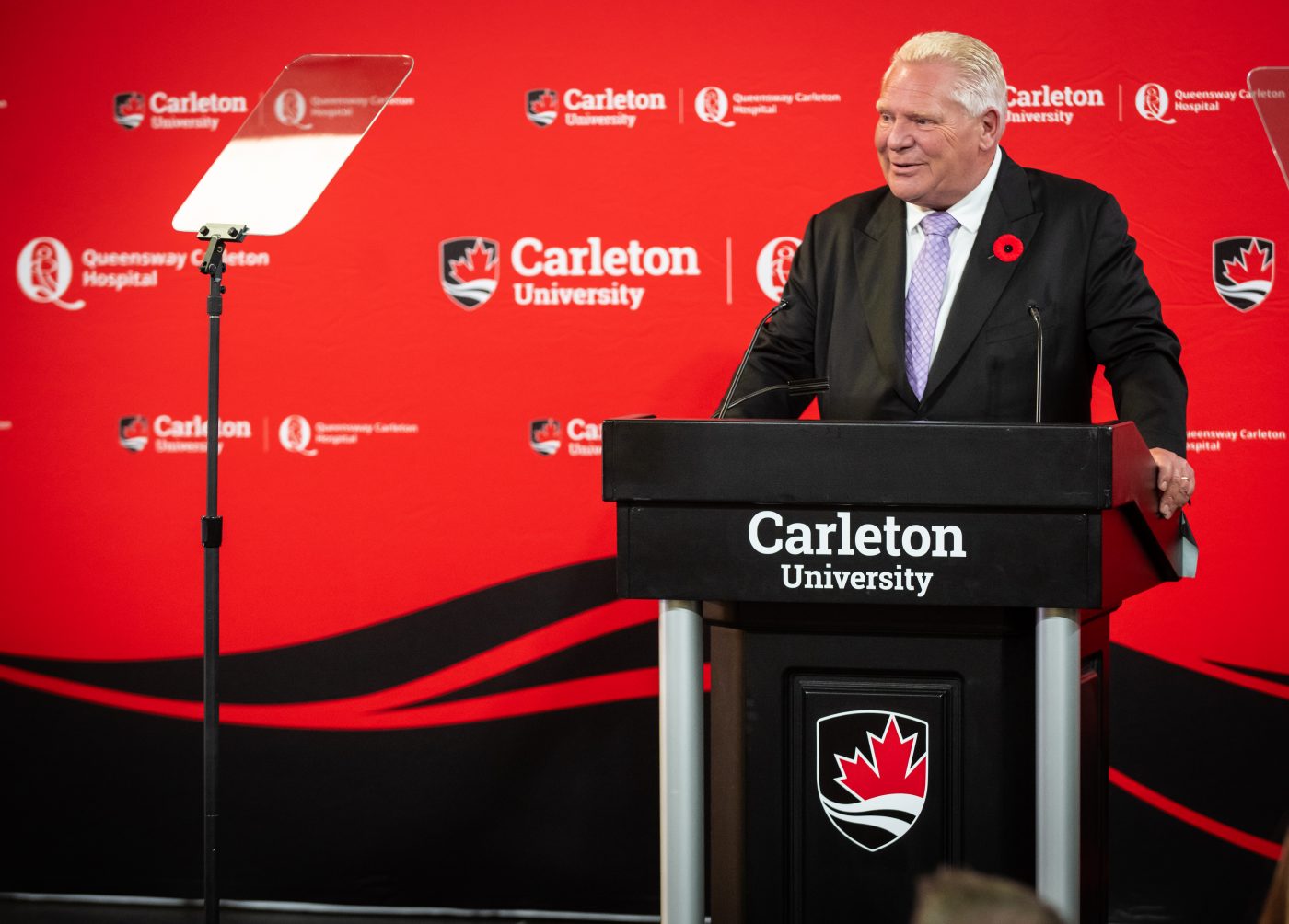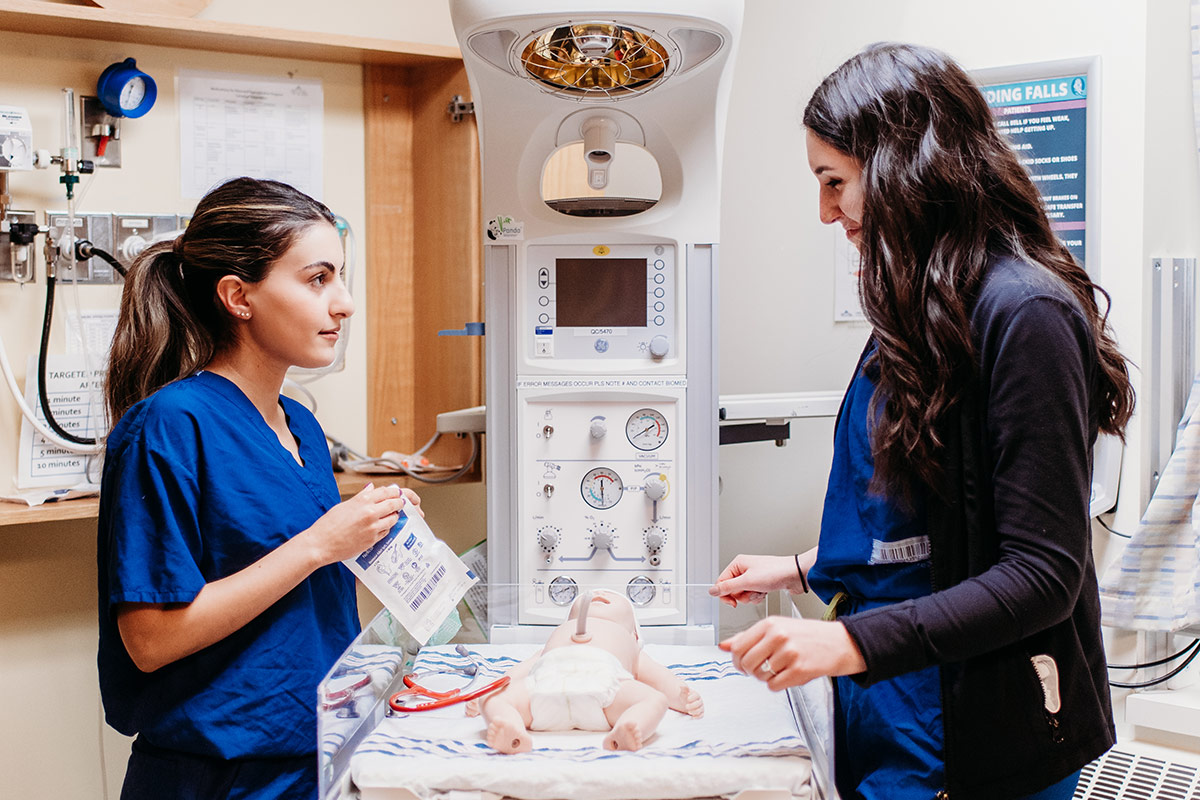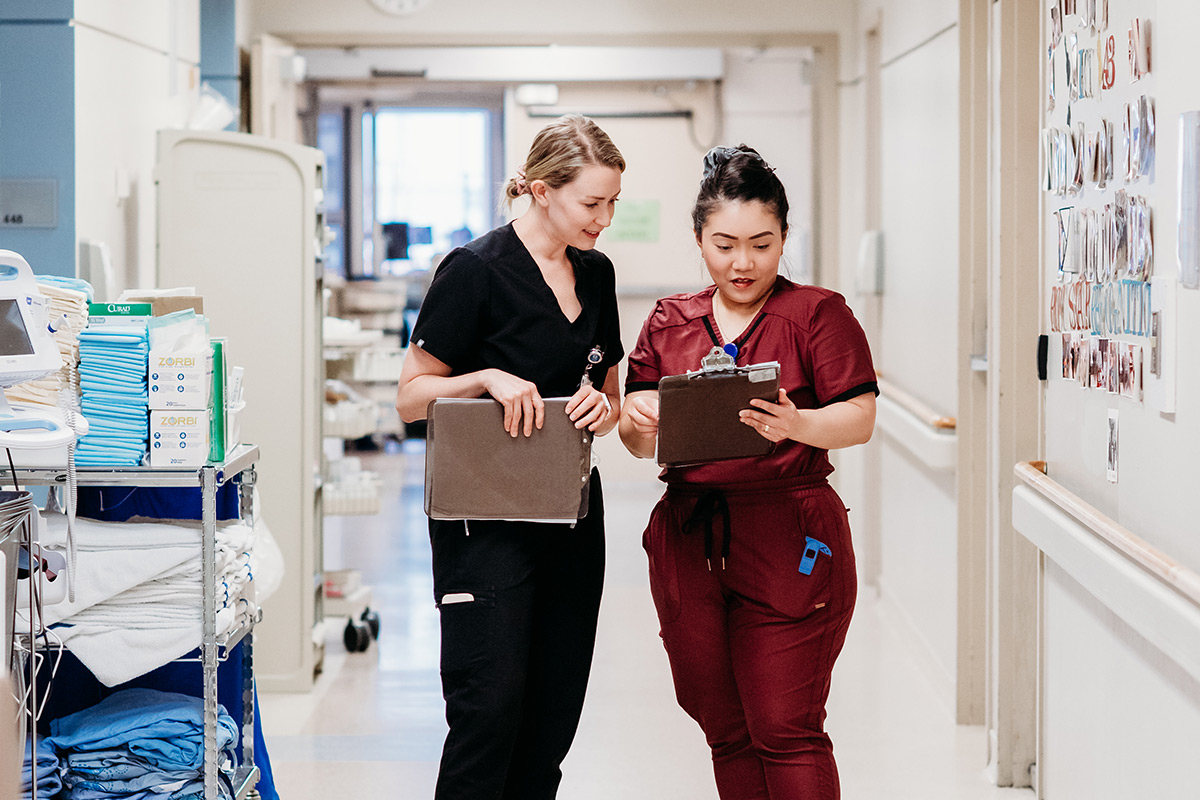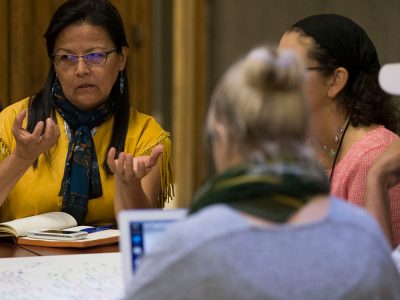Lead image by Queensway Carleton Hospital
By Dan Rubinstein
Ontario’s health-care system is stretched thin.
The province has an aging, diverse and growing population with complex needs. A lack of family doctors means people often don’t receive preventative treatment. And data from the Canadian Institute for Health Information reveals that Ontario needs 26,000 additional registered nurses (RNs) to catch up to the RN-to-population ratio in the rest of Canada — a gap that has widened by three per cent since 2022.
It’s good news, then, that Carleton is launching a new nursing program in September 2025, in partnership with Ottawa’s Queensway Carleton Hospital (QCH). Designed to send graduates into the workforce swiftly to address the shortage, it also promises to transform how nurses care for patients — a huge step toward modernizing health care in Ontario.
“I’m thrilled to be here at Carleton University as we announce Ontario’s first new nursing program in 25 years,” Premier Doug Ford said at Carleton on Nov. 5.
“As we invest $50 billion in more than 50 new and upgraded hospital projects across the province, we’re also investing in the health-care workforce Ontario families are counting on. Today’s announcement is part of that ongoing work, which includes the largest medical school expansion in over a decade, so we can continue connecting more people in Ontario to convenient care close to home.”

Premier Doug Ford attends the launch of Carleton University’s new nursing program on November 5.
Addressing the ‘Theory to Practice’ Gap
The province’s first new university nursing program in more than 20 years is compressed into three years and includes early and frequent clinical placements, starting in the first semester of the first year. This will address what program director Danielle Manley calls the “theory to practice” gap.
“People learn really well when we can connect classroom sessions to a meaningful human interaction,” says Manley, an RN and nursing educator who worked at QCH before joining the university.
“Nursing programs are rigorous, so when classes get hard, the clinical side can be a motivator. Students link classroom concepts to experiences they’ve just had with a patient.”
Students working toward a Bachelor of Science in Nursing at Carleton will be able to concentrate in either Neuroscience and Mental Health or Data Science. The former will help nurses meet holistic patient needs, while the latter incorporates the advanced use of AI and other technologies to improve the quality and efficiency of care. Moreover, both Indigenous health concepts and mental health training are foundational parts of the curriculum, an approach that will support inclusive care and more resilient practitioners.
“Nursing has changed tremendously over the past couple decades,” says Manley. “Rather than learning about new technologies and picking up new skills as an add-on — for example, RN prescribing — we will be seeking approval to include this in our curriculum so our students will do this out of the gate. This will help them have an immediate positive impact.”

The Best of Both Worlds
In December 2022, QCH Vice-President of Patient Care and Chief Nursing Executive Yvonne Wilson met Maria DeRosa, Carleton’s Dean of Science, at a networking event.
They talked about the challenges their institutions were facing coming out of the pandemic and realized that an innovative new nursing program would be beneficial to both parties, and to the province as a whole.
“A hospital and university collaborating brings together the best of both worlds,” says Wilson.
“Nurses are the backbone of the health-care system. By making sure that backbone is solid, we’re going to help patients.
“Nurses don’t just work in the hospital sector,” she adds. “They’re in places like community agencies and long-term care homes. Graduating new nurses who are confident and ready is going to help ensure that we have a stable workforce.”
A focus group comprised of nursing students at QCH led the initial curricular conception. Manley and her colleagues asked them what parts of their education were working well and what could be done differently. The early clinical placement was one result.
“Our program,” says Manley, “is really informed by their real-world experiences.”

Reflecting Multiple Health Lenses
One of the things that excites Manley most about creating something new is the opportunity to do things right from the very beginning.
Members of a steering committee all took Carleton’s Kinàmàgawin Indigenous Learning Certificate workshop series and understood that their program had to reflect multiple health lenses, rather than teach through a western perspective and introduce other concepts. The university’s Collaborative Indigenous Learning Bundles are part of the curriculum, and an Indigenous faculty member will be hired.
The Neuroscience and Mental Health concentration, meanwhile, is rooted in the idea that neuroscience is a deep understanding of how the brain works, while nursing is a set of interventions that can be applied to that knowledge. What’s more, the mental health training students receive will be vital in a profession in which burnout rates approached 80 per cent even before the pandemic, not to mention for handling an accelerated three-year program.
On the tech front, students will learn using simulations with manikins that speak, bleed, sweat and cry, as well as with virtual reality headsets and augmented reality scenarios, some of which are being developed with Carleton’s Experiential Learning Hub. And construction will begin soon on a new state-of-the-art simulation centre in Kanata North, Canada’s largest tech park and home to the university’s west-end innovation space.
Students who enroll in the nursing program will have their full tuition covered through the Ontario Learn and Stay Grant if they work within 200 kilometres of campus for 24 months after graduation.
Nursing is one of five new undergraduate programs that Carleton is launching in September 2025, tailored for today’s high-demand careers.
Following the launch of an interdisciplinary Health Sciences program in 2011, nursing is Carleton’s first foray into medical education — a bold move to help Ontario address one of the province’s biggest challenges.
Wide images by Queensway Carleton Hospital
Tuesday, November 5, 2024 in Health, New/Unique Programs
Share: Twitter, Facebook



